
The basic concepts of communication. How to improve communication. Body language and the messages we are sending.
- Subject:
- Health Education
- Material Type:
- Lesson
- Author:
- Utah Lesson Plans
- Date Added:
- 01/28/2022

The basic concepts of communication. How to improve communication. Body language and the messages we are sending.
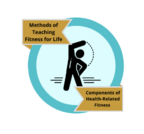
This microcredential represents educators' effective instruction on the 5 components of health related fitness. The foundation of the Fitness for Life is based on these 5 components.

Students will predict possible consequences of substance use and analyze how social messages regarding the use of alcohol, tobacco/nicotine and other drugs may misrepresent the negative effects of each.

This lesson provides a way to help the students demonstrate coping behaviors related to grief and loss through using concepts and conventions of print to create text.
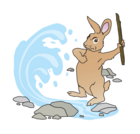
This lesson shares a Ute tale with students to help them to use illustrations to help clarify text details and sequence. The story is then used to help engage students in a discussion on bullying, how actions have consequences and what the characteristics are of a good friend.Background information gives teachers resources to help their students learn more about the Ute Indian Tribe of the Uintah and Ouray Reservation. The lesson is an integrated English Language Arts, Social Studies, Health lesson.
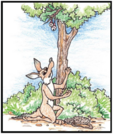
According to Goshute and Ute tradition, Coyote tales should only be told during the winter time. The tribes ask that the teacher use this lesson and story in the winter months. This lesson utilizes the Confederated Tribes of the Goshute (CTGR) tale, “Coyote Loses His Eyes” and the Ute Indian Tribe of the Uintah and Ouray Reservation (UIT) tale, “The Eye Juggler Coyote” to enhance comprehension skills and provide an introduction to comparing and contrasting plot, characters, theme and setting. The students will also be introduced to similarities and differences between the two tribes. Lastly, students will write a response summarizing using compare and contrast key words.Native peoples tell stories about Coyote and other animals to their children. Based on Coyote’s mistakes, the elders teach children about proper behavior and positive attitudes. The lessons taught help children to avoid making the same mistakes as Coyote and suffering the consequences in their own lives.

This lesson will focus on what a strong password is and how to create one.

Students will learn basic concepts surrounding Cyber Bullying.Students will then produce a Tee shirt idea about Cyber Bullying.

Students will learn what cyber-bullying is, the consequences of it, and how to handle a cyber-bullying situation effectively.Activities are provided which take students through real-life situations. They have the opportunity to evaluate how they might feel and how they would act in certain situations.
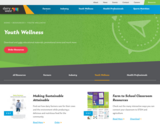
Local dairy farm families believe in giving back to their communities. Dairy West programs empower students and educators to work together to build healthier schools, and create healthy, high-achieving students

Students will learn vocabulary words associated with alcohol and the effects it has on the human body.

Students will learn the vocabulary words associated with tobacco and the negative effects tobacco has on the human body.

Students will increase their knowledge of Internet safety. Students will explore and identify dangers on the Internet and learn ways to avoid situations that might be threatening or harmful.

The decisions teenagers make are influenced by many factors. This lesson will help students differentiate between a variety of influences and recognize the impact these influences have on decision making.This lesson is written as an interdisciplinary unit for both the Health and Language Arts classrooms. It can however, be taught in just one of the classes.
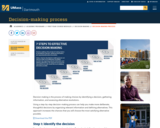
Decision making is the process of making choices by identifying a decision, gathering information, and assessing alternative resolutions.
Using a step-by-step decision-making process can help you make more deliberate, thoughtful decisions by organizing relevant information and defining alternatives. This approach increases the chances that you will choose the most satisfying alternative possible.

Should you tell your kids they are smart or talented? Professor Carol Dweck answers this question and more, as she talks about her groundbreaking work on developing mindsets. She emphasizes the power of "yet" in helping students succeed in and out of the classroom.
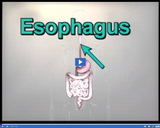
The esophagus is a muscular tube that carries food from the mouth to the stomach through waves of muscular contractions called peristalsis.
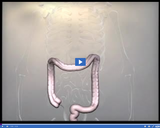
Water is absorbed in the large intestine. The remaining materials leave the body as waste.
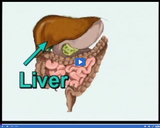
The liver is an organ that filters blood and plays a major role in metabolism.
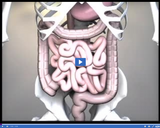
The small intestine is a long tube in the center of the abdomen where a great deal of chemical digestion takes place.